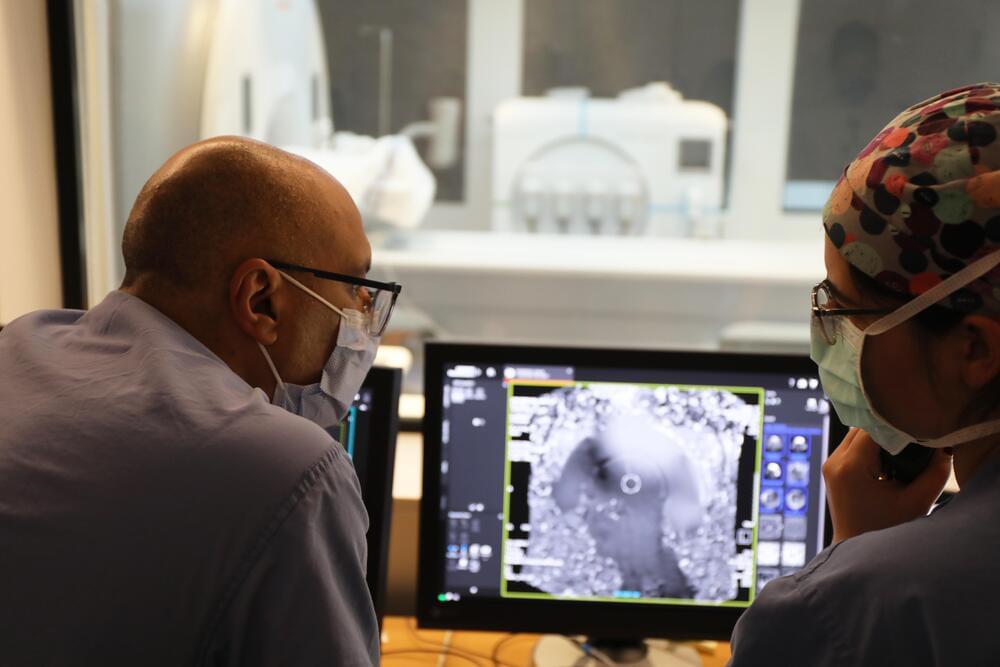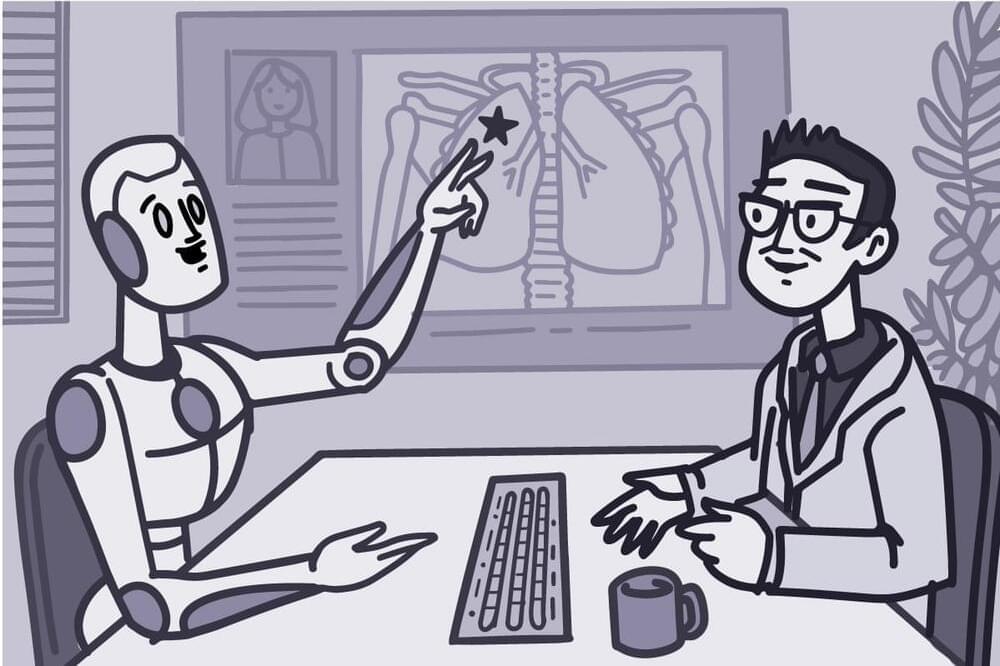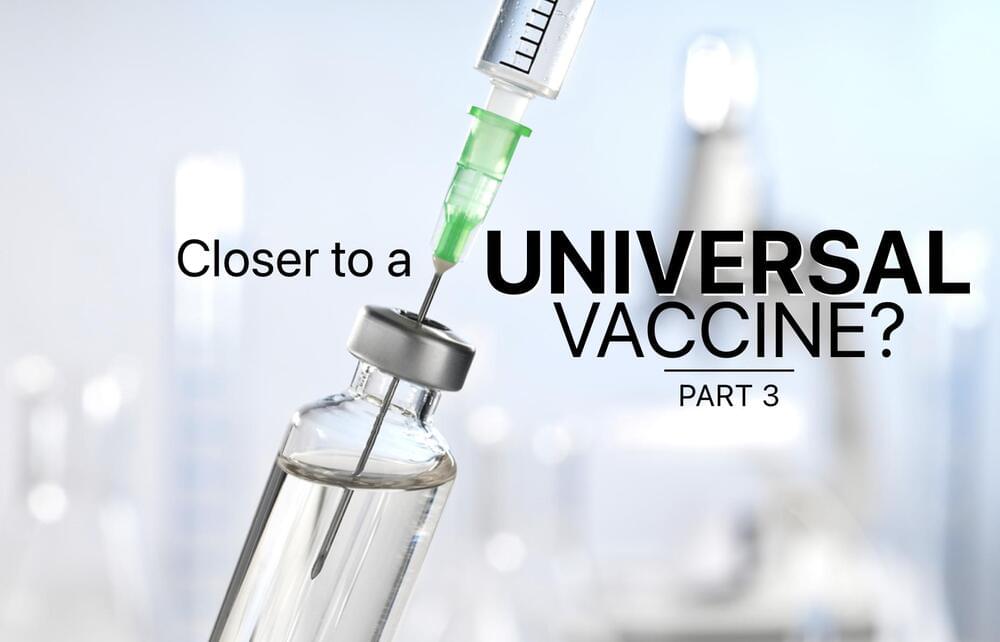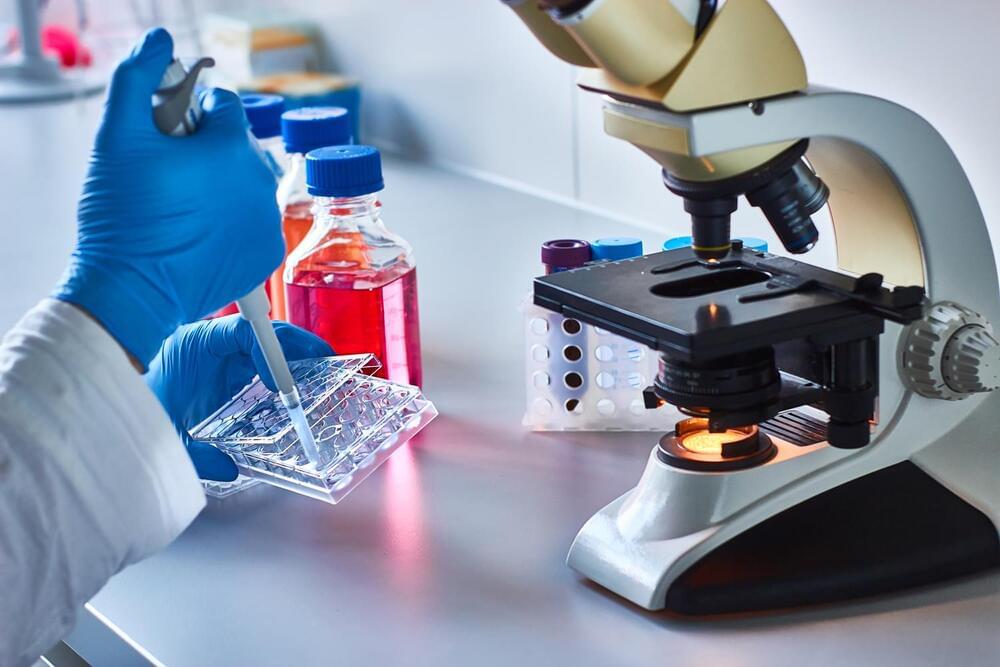Year 2022 face_with_colon_three
OHSU becomes the first in Oregon to offer focused ultrasound to immediately relieve symptoms of essential tremor, tremor-dominant Parkinson’s disease.



One approach to AI uses a process called machine learning. In machine learning, a computer model is built to predict what may happen in the real world. The model is taught to analyze and recognize patterns in a data set. This training enables the model to then make predictions about new data. Some AI programs can also teach themselves to ask new questions and make novel connections between pieces of information.
“Computer models and humans can really work well together to improve human health,” explains Dr. Grace C.Y. Peng, an NIH expert on AI in medicine. “Computers are very good at doing calculations at a large scale, but they don’t have the intuitive capability that we have. They’re powerful, but how helpful they’re going to be lies in our hands.”
Researchers are exploring ways to harness the power of AI to improve health care. These include assisting with diagnosing and treating medical conditions and delivering care.

Part 3: This is the last of a three-part series on how Stanford Medicine researchers are designing vaccines that protect people from not merely individual viral strains but broad ranges of them. The ultimate goal: a vaccine with coverage so broad it can protect against viruses never before encountered.
Until now, vaccine efforts have mainly focused on stimulating B cells, described and discussed in Part 1 and Part 2. These antibody-producing immune cells’ virtue of being highly specific in what they target is also a vice. An antibody against influenza is unlikely to ever bind to, say, a coronavirus or a rabies virus.
Even when a virus mutates in some small way that distorts or disguises one of its biochemical bull’s-eyes, antibodies that worked before (because they aimed at that particular bull’s-eye) are now unemployed.

As we turn our attention from the front of the eye to the back, we also look to the future. Many studies have combined oculomics with AI tools to predict biological age from retinal biomarkers, such as retinal vasculature [1, 6], and even linked this to chronic disease risk, such as cardiovascular disease and cancer [7]. High resolution imaging tools also enable direct visualisation of the neural layers within the retina, which can show signs of neurodegenerative diseases, such as Alzheimer’s disease [1, 6], Parkinson’s disease [8], multiple sclerosis [6, 9], and even rare conditions, such as Lafora disease [10]. In many cases, the oculomic signs are present before symptoms arise. For example, it has been shown that proteins related to Alzheimer’s disease (such as amyloid-beta) accumulate at least one decade prior to cognitive decline [11] and these proteins also accumulate in the retina [12]. This is particularly pertinent to clinical research and drug development, as it enables identification of those who may benefit from intervention before irreversible damage has taken place.
Advances in imaging technology mean that we can now detect biomarkers at cellular resolution. We are continually finding new applications for imaging techniques to detect disease before it takes hold, providing the opportunity to intervene and potentially avoid disease altogether. It’s definitely an exciting time for oculomics research!
Crystallomancy has come a long way since Ancient Roman times, and it makes one wonder whether the scryers of the past could have predicted the transformation of orb-gazing from a mystical art to a rigorous science. Not only does Oculomics enable us to look into your past and present, but also has the potential to look into your future, providing you the opportunity to change your “fate”. Although we cannot be sure what form the advancements in imaging and AI tools will take over the coming years, we can be sure of one thing – that oculomics has a promising future in the quest for longevity.

A previously unidentified genetic mutation in a small protein provides significant protection against Parkinson’s disease and offers a new direction for exploring potential treatments, according to a new USC Leonard Davis School of Gerontology study.
The variant, located in a mitochondrial microprotein dubbed SHLP2, was found to be highly protective against Parkinson’s disease; individuals with this mutation are half as likely to develop the disease as those who do not carry it. The variant form of the protein is relatively rare and is found primarily in people of European descent.
The findings appear in the journal Molecular Psychiatry.

A new artificial intelligence tool that interprets medical images with unprecedented clarity does so in a way that could allow time-strapped clinicians to dedicate their attention to critical aspects of disease diagnosis and image interpretation.
The tool, called iStar (Inferring Super-Resolution Tissue Architecture), was developed by researchers at the Perelman School of Medicine at the University of Pennsylvania, who believe they can help clinicians diagnose and better treat cancers that might otherwise go undetected.
The imaging technique provides both highly detailed views of individual cells and a broader look at the full spectrum of how people’s genes operate, which would allow doctors and researchers to see cancer cells that might otherwise have been virtually invisible. This tool can be used to determine whether safe margins were achieved through cancer surgeries and automatically provide annotation for microscopic images, paving the way for molecular disease diagnosis at that level.

PRESS RELEASE — Scientists are working on a new device that could lead to a reduction in the number of people who go blind from age-related macular degeneration (AMD). Researchers at Centre for Eye and Vision Research (CEVR) are using quantum technology to detect the disease in its early stages where treatment may help preserve vision.
As part of a visit during the recent Hong Kong Laureate Forum, young scientists from across the world learned how the new low-cost ophthalmic diagnostic device could be part of routine GP and outpatient check-ups.
AMD which affects more than 200 million people worldwide, causes changes to the macula, which can lead to problems with central, detailed vision.
Manolis Kellis, an accomplished Computer Science Professor at MIT and member of the Broad Institute, is a trailblazer in computational biology. Renowned for leading the MIT Computational Biology Group, his impactful research spans disease genetics, epigenomics, and gene circuitry. With numerous cited publications and leadership in transformative genomics projects, Kellis has garnered prestigious accolades, including the PECASE and Sloan Fellowship, shaping the field with his international perspective from Greece and France to the US.
Fuel your success with Forbes. Gain unlimited access to premium journalism, including breaking news, groundbreaking in-depth reported stories, daily digests and more. Plus, members get a front-row seat at members-only events with leading thinkers and doers, access to premium video that can help you get ahead, an ad-light experience, early access to select products including NFT drops and more:
https://account.forbes.com/membership/?utm_source=youtube&ut…ytdescript.
Stay Connected.
Forbes newsletters: https://newsletters.editorial.forbes.com.
Forbes on Facebook: http://fb.com/forbes.
Forbes Video on Twitter: http://www.twitter.com/forbes.
Forbes Video on Instagram: http://instagram.com/forbes.
More From Forbes: http://forbes.com.
Forbes covers the intersection of entrepreneurship, wealth, technology, business and lifestyle with a focus on people and success.

AN EXTRAORDINARY WAVE OF PROGRESS against cancer has occurred in the United States over the past three decades. From its peak in 1991, cancer mortality has declined by more than a third. Smoking cessation, human papillomavirus (HPV) vaccination, improved cancer screening and better cancer treatments are poised to push cancer deaths even lower. In 2022, this prompted President Joe Biden to reignite the Cancer Moonshot launched in 2016 with a goal of reducing cancer death rates even further—cutting them in half over the next 25 years.
With growing success in the treatment of many cancers has come a reexamination of the profound impact cancer treatment has on those with the disease. A cancer survivor faces a plethora of physical, emotional, social and financial challenges. Surgery, radiation therapy, chemotherapy and immunotherapy are all plagued by short-term toxicities and longer-term complications that can dominate life during and after cancer treatment and impinge upon its quality.
Fortunately, the same detailed knowledge of cancer genes and gene programs that has led to spectacular advances in cancer treatment may also improve cancer survivorship. Molecular profiling of individual cancers is now commonly used in cancer treatment planning. Breast cancer, long known to be a highly heterogeneous collection of diseases, provides a compelling example. For many years, testing breast tumor tissues for the presence of the estrogen receptor (ER), the progesterone receptor (PR) and the human epidermal growth factor receptor 2 (HER2) has been essential to steering women with breast cancer toward or away from endocrine therapies or agents like Herceptin (trastuzumab) that bind to HER2. Newer molecular profiling tools—including Oncotype DX, MammaPrint, Breast Cancer Index, EndoPredict and the Prosigna Breast Cancer Prognostic Gene Signature Assay—have further refined and individualized breast cancer treatment decision-making.